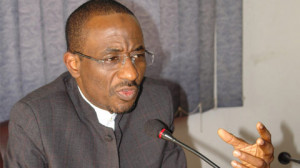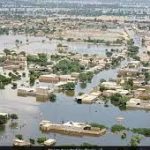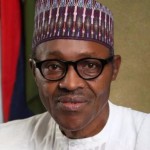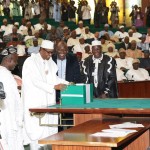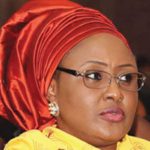Missing – Why Is Our Money Always Missing?
Articles/Opinion, Latest Headlines Saturday, March 15th, 2014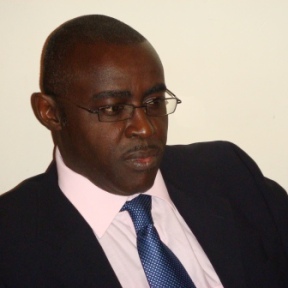
Akintokunbo A Adejumo
As far as public money is concerned in Nigeria, the word MISSING has taken on a whole new sinister meaning. Every day, it is one massive amount (usually in billions, soon to graduate into trillions) of money missing from the coffers of one government ministry/department/agency or the other. The states are not left out and I bet the local government are only able to keep a lid on it because the torch is not shone on them, and we tend to underestimate the fraud and theft going on in these other two tiers of government. It is corruption at its best (or worst, depending on semantics). But unfortunately, to the poor masses of Nigeria, it is no laughing matter. It is a matter of life and death to them, actually, more death than life.
Getting a clear picture of how much money Nigeria has lost to corruption over the years is almost incredible, and to right-thinking Nigerians, intolerable. The system is bleeding cash in so many places that accountants often struggle to make sense of it all. The state oil firm, Nigerian National Petroleum Corporation (NNPC), does not measure its output, nor does it know exactly how much is being pumped out, who is pumping what amount?; who is transporting what amount and what income is generated from drilling, pumping, refining, export and import, sales, etc. It is a nightmare compounded by mediocrity, inefficiency, greed, and corruption and baffling lack of patriotism. The government estimates that average output is 2 million to 2.6 million barrels of oil a day, making Nigeria Africa’s biggest producer. Please note the word “estimate” which in my vocabulary translates to “conjecture”. How can a responsible government be conjecturing what comes to it as revenue on which it is solely, even if erroneously, dependent?
Billions of dollars, Naira and other currencies “missing” means billions of money unaccounted for. Who are the ones stealing the money? Who are they conniving with? How is it so easy to steal such colossal amounts of money from a responsible government department, ministry and agency? Where is the money? How could this happen? Where are the checks and balances? How much more has gone missing? Is this happening in the other government ministries, departments and agencies too? What would happen if a corporation like the NNPC failed to pass an audit like this? Who can we trust to fix it? Is the corruption in NNPC in the imagination of some people, as one of their officials asserted recently? And what is NNPC? Isn’t it a department of government run by human beings? It is the human beings in NNPC that are the thieves.
There are four major lessons, or rather, learning curves that Nigerians should take from this. One, the country is so rich and blessed with seemingly unending revenue from oil and other resources that we can afford to lose such massive amounts and still keep going. The loss of , say for example, $20 billion in a lesser African or even Asian country will not only permanently cripple its economy, but also topple the government and have people rioting in the streets and calling for the heads of those responsible and the government.
Secondly, it highlights the gross laxity, recklessness, impropriety, triviality, incompetence, and dishonesty of successive rulers of Nigeria in the way they have been running the government and the economy of this country for the past five decades. It also highlights the mediocrity, complicity and culpability of our civil servants – “evil servants”, we call them now – and other public officers in running the economy and the system of the country to the ground. There is always a discrepancy in what comes in and there’s a lack of accounting of how money has been spent, and the government has no real accounting system nor does it publicly disclose financial statements.
Thirdly, it shows the lack of passion, lack of understanding or ignorance by the people of this country with apathy, coupled with despondency as far as showing interest in how we are being governed. So much have been said and written about this that we do not have to recycle this fact again here. The issue is what do we do? We do not forcibly demand accountability and openness from our rulers, so they get away with all these evil. And we slink back into our miserable lives and beg God to save us. It is our right and duty to keep governments and government departments on their toes and keep up the momentum, particularly towards an open and legitimate political process in the country, towards making sure that our money is spent properly and transparently at all times.
Fourthly, the Nigerian government must improve transparency over its oil (and other) revenues and auditing the state oil company, the NNPC. The alleged disappearance of $20 billion raises serious questions about the government’s efforts and underscores the need for public accountability.
In a country where we have an Accountant-General and Auditor-General, (and we have to draft in the Attorney-General and Solicitor-General) who are supposed to be at the top of the accountability ladder, well-learned and have risen to the top of their profession, in a bureaucracy such as we have, it is a shame on those offices mentioned that we hear billions missing almost on a daily basis. It is a blot on their careers; they are culpable and are also dishonest. I have personally noticed when such damning news come out, the Auditor-General of the Federation’s office hardly say anything. In the case of the missing $20 billion NNPC oil money, the only thing that came from that office is that their office does not have the remit to audit NNPC’s account, which had not been audited for over 5 years. Preposterous!
When you have a government that is not accountable to the people it governs, what you get is what we are now having. A government that cannot reconcile, in accounting terms, the exact revenue it derives from the oil that we are blessed with; from customs tariff, and from other resources and avenues of external trade and income; a system of government where the civil servants and public officers, deliberately or unknowingly cannot keep track of the common wealth; a system of government where budgetary procedures are not being strictly adhered to and where money is being appropriated loosely like a farmer throwing seeds on his farm like the biblical sower.
The fact we have to face is that (and we say this over and over again) there is absolutely no government ministry, department and agency that is clean in Nigeria. All of them are cesspool of corruption, staffed by thieves from the messenger to the Permanent secretary or Director General. They know how the system works and also adapt it to make money illegally from the loopholes they have themselves created. Corruption has been built into the system from the very beginning. And it all started from the civil service. The military only enforced it and the politicians willingly connive with the civil servants to exploit the loopholes.
This is exacerbated by a weak and dishonest internal accounting and auditing system, aided by a crooked criminal justice system and judiciary, complemented by a decrepit crime fighting agency (the Nigerian Police) and the vulture-minded legal system (the lawyers).
It is a shame on a country, any country, to always be on the defensive on issues of corruption on a daily basis. But this I what our lot is in this country. The governments, federal, state and local, always have to defend themselves on corruption scandals. What time, then, do they have to concentrate on issues of development and progress like providing healthcare and education for their people, provide housing and food, take economic decisions, and generally better the lives of the people they rule? All is predicated on corruption. You cannot have corrupt people in government and expect progress and development in a country. It is impossible.
“Since oil was discovered nearly 60 years ago, its attendant and resultant revenue and benefits have always found ‘black hole’ for its disappearance. The irony, even when it has disappeared into private pockets, none of the illegal custodians have done anything big with it except owning houses in UK/EU/US and stashing some in foreign accounts, and often ending up wretched after a few years. It is never about the money but the attitude to it. When it comes to money, Nigerians have difficulty separating public money from private ones, reason the country is run like petty cash operation of whoever is in office. There is a blur between what is public and private”. (E E Okpa, in a private email sent to me) And the reason Nigeria is the poorest nation of all oil exporting countries, as per capita basis.
So what we can do about it? We need to forcefully demand full financial transparency and accountability in government. Huge sums unaccounted for is like a pouring water into a basket, draining our society. This must be stopped! Voters can fix this. In fact, this will only be fixed by people making it happen. Focus spiritually (if you believe in prayers), include in your prayers and meditations the intention to find and get back our missing money, and shift to a clean and open financial system.
We have to force our elected officials to take immediate corrective action; make this an election issue; support candidates who use anti-corruption as their campaign promises. We must demand serious media watchdogging, the press and the media must also show that they are on the right path of honour and owe a responsibility to the public and their readers, and indeed to Nigerians, that they cannot be bought off not to expose and report corruption in high places.
We must promote financial transparency and constantly and consistently demand government openness and accountability; vote with your head. Educate; learn more, and help other people learn; cultivate financial literacy so you can participate effectively in a democratic economy, locally and nationally. We must network globally to demand full financial transparency and accountability from our wayward governments (federal, state and local), while we act locally to create investment-worthy local living economies.
Tens of billions of dollars could be used for the benefit of the Nigerian people – instead the government can’t account for them. Nigerians deserve a full public explanation for where those billions went.
Related Posts
Short URL: https://www.africanexaminer.com/?p=9140


